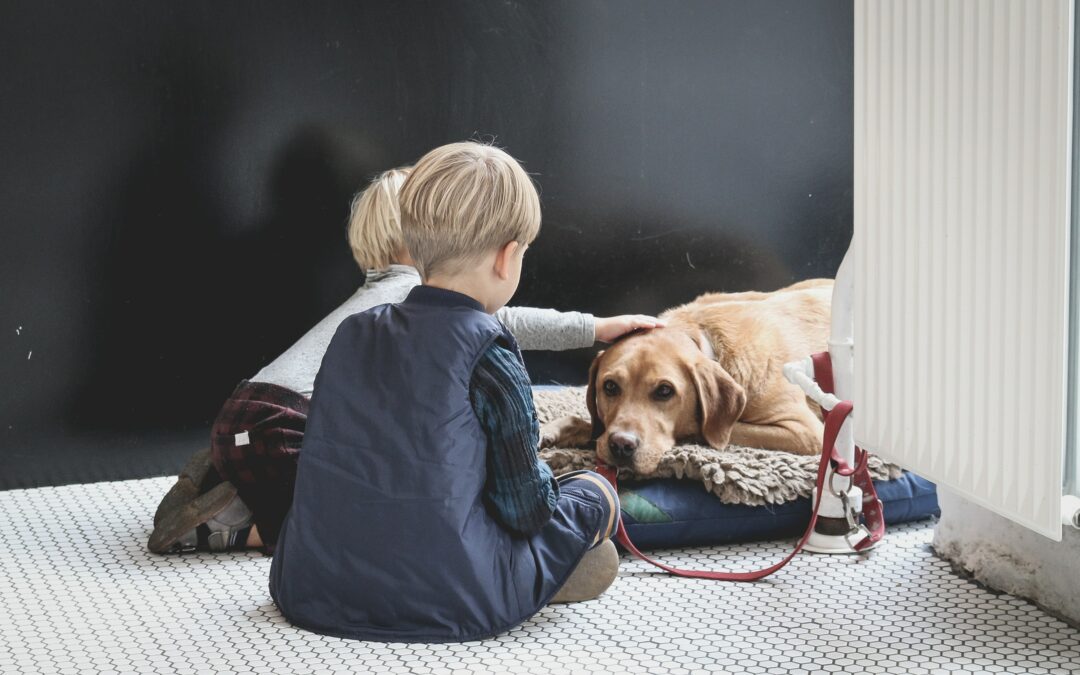You might have heard your child ask for a pet multiple times as a parent.
However, at the same time, there’s a good chance you have rejected the idea the same number of times. This is understandable; it may seem like a lot of work. However, there are some benefits to having a pet that can directly impact your child’s development and learning. If you are interested and want to learn more, make sure to keep reading this article until the end.
7 Ways Having Pets Can Impact A Child’s Development and Learning
Here are 7 ways pets can benefit your child:
- Responsibility
- Empathy
- Social Skills
- Emotional Regulation
- Academic Performance
- Physical Health
- Mental Health
1. Responsibility
Taking care of a pet teaches children responsibility and the importance of being dependable. This is because feeding, grooming, and exercising a pet requires consistent attention, which can help children develop a sense of accountability. By directly being responsible for another living thing, children will be able to better understand and appreciate the care and effort that goes into their upkeep.
This will also help them become more responsible individuals when they leave home to stay by themselves in college. Balancing academic and personal responsibilities is no easy feat, which is why some students choose to Google: “Can I pay someone for my term paper?” While this internet search will yield many results, few are reliable, affordable, and professional. That said, a good writing company will ensure that each paper is 100% original and that the quality meets their standards.
2. Mental Health
Lastly, pets can have a positive impact on mental health. They can provide a sense of companionship and reduce feelings of loneliness or isolation. This is very useful, especially in scenarios where the family has recently moved, and your child is struggling to adapt to the new environment. Finding a companion in a pet can help make those first few months more bearable.
3. Emotional Regulation
Caring for a pet can also help children regulate their emotions. Pets provide a sense of comfort and security, which can help children feel more relaxed and less anxious. This is particularly helpful for children who suffer from autism. While the symptoms can be hard to identify, there are various ways in which they can be managed, and getting a pet is one of the best methods.

Photo by Vinicius “amnx” Amano on Unsplash
4. Social Skills
Pets can help children develop social skills by providing a common interest to talk about with others. So many people love pets, and for the most part, these individuals tend to be kind and receptive, just the kind of people you want your kid to associate with. This can also help shy or introverted children feel more comfortable in social situations like birthday parties or other social gatherings.
5. Academic Performance
Another benefit of having a pet has to do with academic performance. Students perform best when they are calm and collected. Some pets, such as cats, for instance, can even detect when you are feeling overwhelmed. This shouldn’t come as a surprise, considering there’s reason to believe cats see ghosts. This is why getting a pet can have such a positive effect, as pets can be sources of joy and relaxation. When your child’s stress levels are low, they are more likely to be focused and concentrate when handling academic pursuits.
6. Empathy
Pets provide a great opportunity for children to learn empathy. They learn to understand the needs and feelings of another living creature and how to respond to them appropriately. This is an essential skill as it can help your child make friends and manage existing and future relationships with better care.
7. Physical Health
Caring for a pet requires physical activity, which can help keep children healthy and active. Dogs, for example, need to be walked regularly, which can help children develop healthy exercise habits. However, if you intend to get your kid a dog, you might want to go for certain family-friendly breeds. This way, you can worry less about your child’s safety and let them have fun instead.
In Conclusion
Getting a pet can be a great decision for your child’s development and learning. However, it is important to remember that pets require a lot of care and attention. So, ensure that you and your child are prepared to take on the responsibility before bringing one into your home.
Learn more about us
Subscribe to the DAR Newsletter below:
About the author


